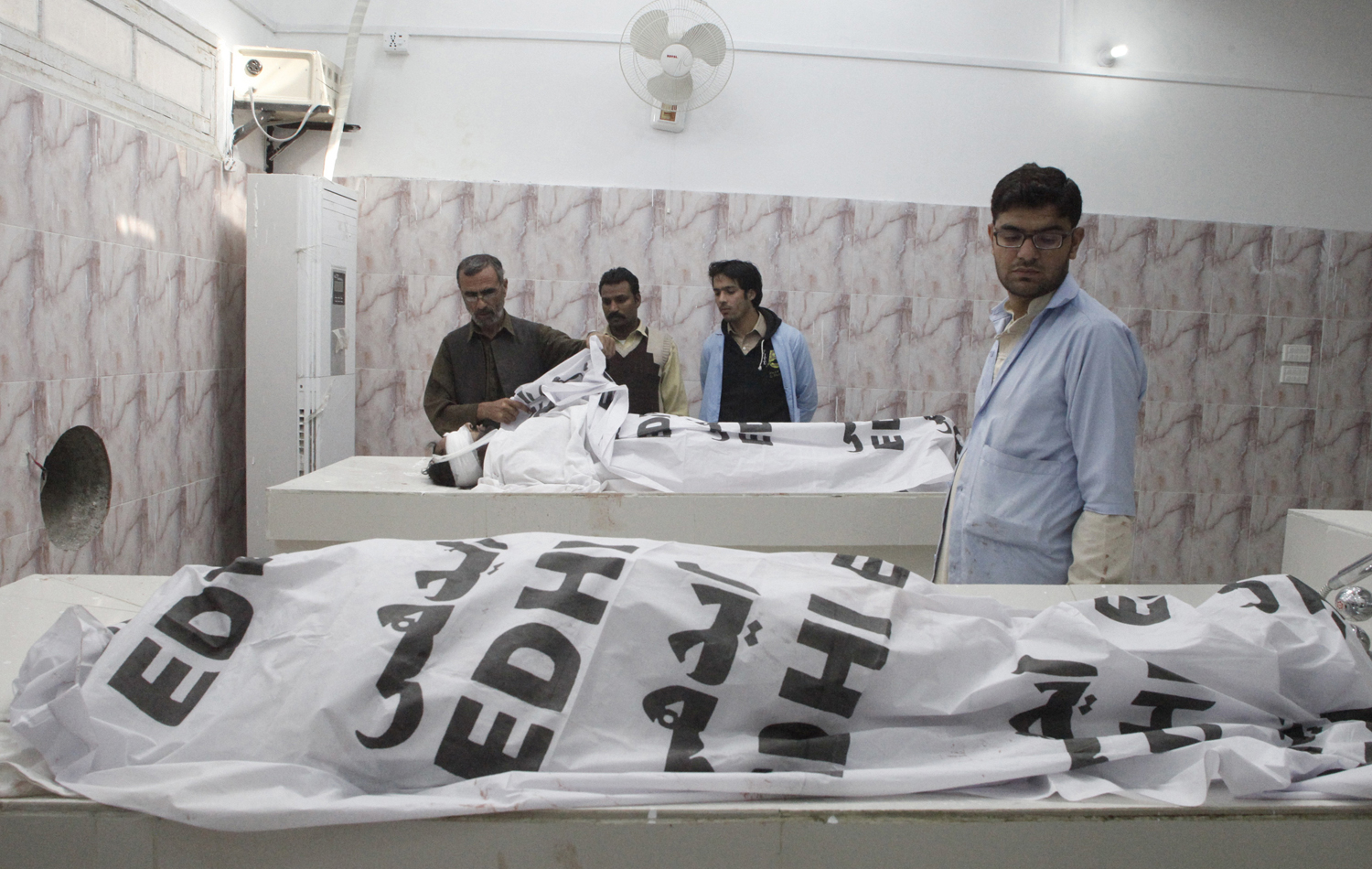
Public-health workers continue to be gunned down at will by Islamic militants across Pakistan, where ongoing attacks against vaccination teams have hampered the government’s ability to rein in a spiraling polio crisis.
On Wednesday, heavily armed militants in the Baluchistan region capital of Quetta mowed down members of an antipolio campaign, leaving four public-health workers dead and three others injured. Survivors of the ambush chided government officials for failing to provide sufficient security for the team.
“Two men on a motorcycle stopped our car and started shooting. No security arrangements were made,” one of the victims told the Pakistani newspaper Dawn. “We called everyone, but no one came to our rescue.”
The bloody scene in Quetta this week has sadly become all too familiar in conflict-riven Pakistan. On Monday, near the city of Peshawar, gunmen mounted on a motorcycle shot and injured another polio health worker. A Taliban splinter group later claimed responsibility for the attack and issued a statement deriding the polio vaccine as “dangerous to health” and “against Islam,” according to the Los Angeles Times.
The uptick in brazen attacks against health workers has saddled Pakistani Prime Minister Nawaz Sharif’s embattled administration with renewed criticism, after he made boisterous promises during his campaign in 2013 to make peace with Taliban forces.
“Such cowardly attacks against our goal of polio-free Pakistan will further strengthen our resolve to stamp this menace out of the country,” Ayesha Raza Farooq, the Pakistani Prime Minister’s focal person on polio eradication, said in a statement on Monday. “I urge the provincial government to take all measures necessary to protect the polio teams and ensure safe conduct of polio campaigns.”
The militants’ suspicion of vaccination programs has been fueled in large part by the bogus hepatitis B campaign crafted by U.S. clandestine officials searching for Osama bin Laden in Pakistan in 2011, which later lead to the dramatic killing of the al-Qaeda chief by Navy Seals.
In 2012, Taliban forces operating in the country’s tribal belt banned polio vaccinations and began openly attacking public-health officials trying to administer inoculations. More than 60 public-health workers have been killed in the country since the declaration.
Since 2012, transmission of the virus has been most intense in the country’s restive Federally Administered Tribal Areas (FATA). But following an offensive launched by the Pakistani military against insurgents in FATA’s North Waziristan in June, close to 1 million people fled the area. As a result of the exodus, the polio epidemic has spread to other parts of Pakistan that had previously been unexposed to the highly contagious virus.
In the onslaught’s wake, public-health officials claim to have vaccinated more than 1 million people in the past few months, including 850,000 children under the age of 10, who were previously inaccessible, according to the Global Polio Initiative. Still, polio continues to spread across the country.
Public-health officials confirmed this week the existence of 260 new polio cases in Pakistan this year — a fourfold increase since the same duration in 2013, according to the New York Times. Pakistan is one of just three countries where polio remains endemic.
More Must-Reads From TIME
- The 100 Most Influential People of 2024
- Coco Gauff Is Playing for Herself Now
- Scenes From Pro-Palestinian Encampments Across U.S. Universities
- 6 Compliments That Land Every Time
- If You're Dating Right Now , You're Brave: Column
- The AI That Could Heal a Divided Internet
- Fallout Is a Brilliant Model for the Future of Video Game Adaptations
- Want Weekly Recs on What to Watch, Read, and More? Sign Up for Worth Your Time
Contact us at letters@time.com